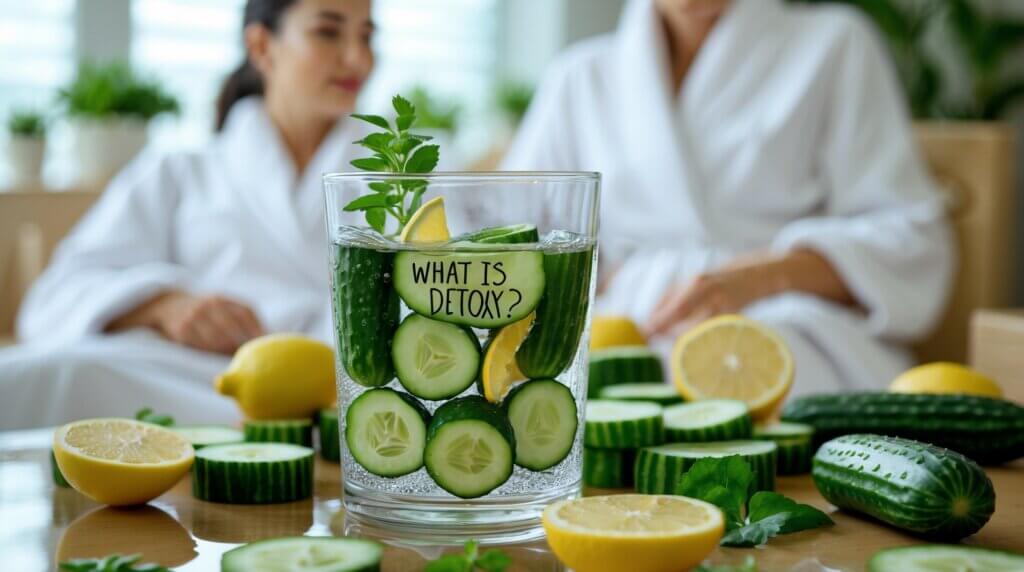What Is Detox?
Detox, short for detoxification, refers to the process of removing toxins from the body. It encompasses various practices aimed at enhancing the body’s natural ability to cleanse itself from harmful substances, whether they are ingested through food, air, or environmental exposure. While the term often conjures images of juice cleanses or strict diets, detoxification can take many forms, from dietary changes to lifestyle adjustments.
The Importance of Detoxification
Understanding detoxification is crucial, especially in today’s fast-paced world. With increasing exposure to processed foods, pollutants, and stress, our bodies can become overwhelmed. Detoxification helps restore balance, boosts energy levels, and enhances overall well-being. In Massachusetts, where health and wellness trends are increasingly popular, learning about detox can empower individuals to take control of their health.
How Does Detox Work?
Detoxification works by supporting the body’s natural organs of elimination, primarily the liver, kidneys, and digestive system. These organs filter out toxins and waste products, but they can sometimes become sluggish. A detox regimen often includes:
- Hydration: Drinking plenty of water to flush out toxins.
- Nutrient-rich foods: Consuming fruits, vegetables, and whole grains to provide essential vitamins and minerals.
- Physical activity: Engaging in regular exercise to promote circulation and sweating.
Types of Detox Programs
There are various types of detox programs available, each with its unique approach and benefits. Here are some popular methods:
1. Juice Cleanses
Juice cleanses involve consuming only juices made from fruits and vegetables for a set period. They are popular for quick detoxification and can provide a surge of vitamins and minerals. However, they should be approached with caution and ideally under the guidance of a healthcare professional.
2. Whole Food Detox
This approach focuses on eating whole, unprocessed foods and avoiding refined sugars and unhealthy fats. It emphasizes the consumption of nutrient-dense foods that help the body naturally detoxify.
3. Fasting
Intermittent fasting, where individuals cycle between eating and fasting periods, can support detoxification. It gives the digestive system a break and may enhance the body’s natural detox processes.
4. Herbal Detox Supplements
Some people choose to use herbal supplements known for their detoxifying properties, such as milk thistle, dandelion root, and burdock root. Always consult with a healthcare professional before starting any supplement regimen.
Benefits of Detoxification
Detoxification can offer numerous benefits, particularly for those seeking to enhance their health and wellness. Here are some key advantages:
- Improved Digestion: A detox can help reset the digestive system, reducing bloating and promoting regularity.
- Increased Energy: By eliminating toxins, many individuals report feeling more energized and alert.
- Enhanced Skin Clarity: Detoxing can lead to clearer skin as impurities are flushed out.
- Weight Loss: Some detox programs can result in weight loss by reducing calorie intake and promoting healthier eating habits.
How to Incorporate Detox into Your Daily Life
Integrating detox practices into your daily routine can be simple and effective. Here are some practical tips:
Get more content like this!
Sign up to receive updates and new terms first hand.
- Stay Hydrated: Aim for at least 8 glasses of water a day. Infuse your water with lemon or cucumber for added flavor and detox benefits.
- Eat Clean: Focus on whole, organic foods. Incorporate plenty of fruits, vegetables, and lean proteins into your meals.
- Limit Processed Foods: Cut down on sugar, alcohol, and processed foods, which can burden your body with toxins.
- Practice Mindfulness: Stress management techniques, such as yoga and meditation, can aid in detoxification by promoting mental clarity and emotional balance.
Detox Myths and Misconceptions
Despite the growing popularity of detox programs, many myths persist. Let’s address a few:
1. Detoxing is Only for Weight Loss
While some people may experience weight loss during a detox, the primary goal is to support overall health and well-being.
2. Detox Programs are Dangerous
When done correctly and under professional guidance, detox programs can be safe and beneficial. However, extreme detox methods can be harmful.
3. You Need Expensive Products
Many effective detox methods can be achieved using simple, affordable ingredients from your kitchen or local market.
Related Concepts
Understanding detoxification can enhance your knowledge of other health-related concepts, such as:
- Clean Eating: Focusing on whole, unprocessed foods that nourish the body.
- Mindfulness: Being present and aware, which can support emotional detoxification.
- Wellness Retreats: Many retreats offer detox programs that combine nutrition, exercise, and relaxation.
Conclusion: Your Detox Journey Awaits
Detoxification is a powerful tool for improving your health and well-being. Whether you choose to embark on a structured detox program or simply incorporate detox-friendly habits into your life, the benefits can be profound. As you explore what detox means, remember that the journey is personal and should be tailored to your individual needs and lifestyle.
Are you ready to take the first step towards a healthier you? Consider starting with a simple detox plan today, and watch as your body and mind transform!

